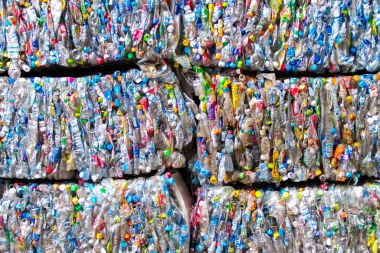
April 22 marked Earth Day. What began as a one-off environmentalist demonstration across schools and colleges in the US back in 1970, has now evolved into an annual celebration observed across the world. People come together to raise awareness of the global environmental issues we are facing, from the climate crisis to biodiversity loss, and commit to taking collective action to protect our planet.
This year’s theme was Planet vs Plastics and the aim was to ‘unite students, parents, businesses, governments, churches, unions, individuals, and NGOs in an unwavering commitment to call for the end of plastics for the sake of human and planetary health, demanding a 60% reduction in the production of plastics by 2040.’
Plastic pollution has concerning implications for the health of our ecosystems and ourselves, and it is also intrinsically linked to the impacts of the climate crisis. Firstly, plastic is made from oil and is the fastest growing source of industrial greenhouse gas emissions. Then since 2 billion people, 1 in 4, have no safe way to dispose of rubbish, plastic often either ends up blocking up drains and waterways, making increasingly frequent flooding worse, or getting burnt, producing further pollution and carbon emissions. This is according to Tearfund, who say that being forced to live alongside these mountains of rubbish, taking in the toxic fumes and contaminated water, causes up to 1 million deaths each year.
Plastic pollution is a matter of injustice.
Closer to home, even the iconic landscapes of the Lake District have been found to be contaminated with microplastics by researchers, and there are concerns that increased inland flooding will mean that these plastics reach the oceans in greater volumes, impacting marine ecosystems.
It’s been decades now since that first Earth Day in 1970, and despite the environmental movement’s efforts and achievements, we must acknowledge that we have not done enough to fully prevent the ecological crisis. How did we get here? When did we lose sight of our responsibility to care for God’s creation, and for our neighbours, whether near or far?
Perhaps you’ve tried to reduce your personal use of single-use plastic, always remembering to carry your reusable shopping bags or coffee cup. Maybe you’ve gone on litter picks in your neighbourhood and make sure to sort your recycling properly. But in today’s world, driven by convenience and never-ending consumption, it’s going to take a bigger shift in our attitudes and systems to properly address this problem.
As Christians, we understand that we live in a fallen world, and so sin is unavoidable. It’s simply not possible for many of us to live completely plastic free lives. And with plastic being found from the massive Great Pacific Garbage Patch in the middle of the ocean, to inside our very bodies, it can be overwhelming to know where to start.
Hannah Malcolm writes in the book, Words for a Dying World, ”As far as the East is from the West, so far has God removed our sin from us’, the Psalmist promises. But what if our sin has infiltrated every corner of the Earth? Where will our sins go now?’
Our response starts with grief. In the spirit of Earth Day, let’s reflect on how we, especially those of us in the West, have made an idol of convenience at the expense of the planet and people that God loves, and the very real suffering that has caused. Maybe take some time to be in nature and thank God for creation.
And as we repent, we can turn to action, trusting in God’s promise to remove our sin from us and to redeem all things, even in this time when environmentally, things seem broken beyond repair.
There’s a reason the aim for this year’s Earth Day referred to both governments and churches as those who must commit to ending plastic production. We can work together with those in our church communities, local government, and even on national and international levels.
Pray that God would uplift the voices of those most affected by plastic pollution, so they will be heard by those in power. Psalm 113:7-8 says, ‘He lifts the poor from the dust and the needy from the garbage dump. He sets them among princes, even the princes of his own people!’ Ask others in your church to write to your political representatives and pray for them as you urge them to call for bold, decisive, urgent action.
And we can also be bold in sharing our reasons for caring so deeply for people and planet, pointing to the example of the self-sacrificial love of God for creation, and the singular hope we find in the promise of abundant life beyond death/even in the most rubbish of situations (sorry, couldn’t throw away the opportunity!).